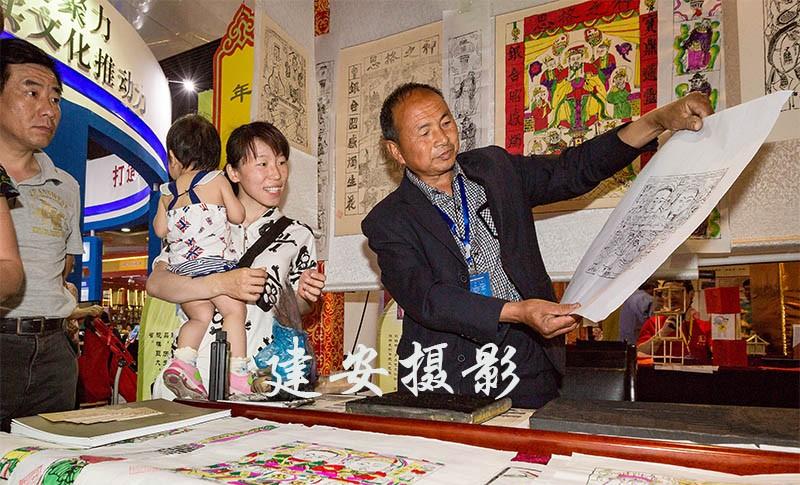
Lanterns, in people's hearts today, are just children's toys and symbols of festive celebrations. However, in the era when electric lights have not yet appeared and popularized, lanterns are a necessity for people's lives and carry a heavy cultural connotation.
In ancient China, lanterns were door lamps (wind lamps) used to mark official streets and business names. The history of lanterns has a long history, and scholars have researched that Chinese lanterns are the earliest portable lighting tools invented in the world. The word "Dong" in the oracle bone may be a depiction of the image of the original lantern in ancient China.
Chinese lanterns are also collectively known as lanterns, during the opening year of the Tang Dynasty, in order to celebrate the national Peace and Civil Security, people tied up flower lanterns, with flickering lights, symbolizing "colorful dragon Zhaoxiang, the people are rich and the country is strong", and the flower lantern custom has been widely popular ever since. Regarding the origin of lanterns, one of the more widely circulated sayings is that the custom of lanterns on the Lantern Festival began in the Eastern Han Dynasty, the Eastern Han Dynasty Ming Emperor Liu Zhuang believed in Buddhism, heard that Buddhism has the fifteenth day of the first month to view the monks to view the Buddha relics, light lamps to worship the Buddha, so that this night in the palace and temples to light the lamp to worship the Buddha, so that the people of the clan hang lamps. Since then, this Buddhist ritual festival has gradually formed a grand folk festival.
During the Southern Dynasty of Emperor Wu of Liang, lanterns made of ornately decorated Jinjia paintings of Buddhism, tales of heavenly beings and gods and ghosts appeared, forming lantern paintings. Lantern painting, which is a traditional folk art painted on top of traditional lanterns for beautifying decorative lanterns.
The Zhangjia lantern in Dongsipai Village, Maxiang, Neihuang County, Anyang City, Henan Province, is also known as the Tongzhu Lantern, because the Zhang family lived in The Tongzhu Village of Neihuang County at that time, and people's painting habits on the lantern are called Zhangjia Lantern Painting or Tongzhu Lantern Painting, which has a history of more than 300 years. The character image of the Zhangjia lantern painting in Neihuang County advocates heroes, and the painting colors are distinct, red and green, exaggerated and simple, and have strong local colors.
The representative inheritor of the Zhangjia lantern painting in Maxiang, Neihuang County, is Zhang Siqing, who boldly innovated and improved, adding fresh cultural elements to the lantern painting on the basis of traditional painting, and was named "Neihuang Siqing Lantern Painting" by the relevant departments. In 2013, the Inner Yellow Siqing Lantern Painting was included in the List of Intangible Cultural Heritage Protection of Anyang City. In the same year, Zhang Siqing, the representative inheritor of the Siqing lantern painting, was also named the inheritor of the intangible cultural heritage of Anyang City by Anyang City.
Lanterns are lit in their hands to guide people back to their warm homes. The village mouth red light hangs high, comforting the lonely heart of the wanderer in the distance. When it comes to articles related to lanterns, the most famous is an essay by Mr. Wu Boxi, a famous contemporary Chinese writer and educator, "Lanterns", in which Mr. Wu talks about the nature of children from childhood to the torches of the plains, from the village lipstick to the red light, to patriotic enthusiasm.
Mr. Wu Boxi wrote at the beginning of "Lantern": Although it is not like a lantern moth, love the light and burn the body, children like fire, like light, but it seems to be nature, put in the dark room to cry Bao'er, lit the lamp and cried stopped. At the end of the year, playing with fire and lights, Chinese New Year's Eve burning dripping gold, and setting off fireworks are rare exceptions in the children's group. Although the adults are afraid of the danger of fire candles and candles, they want to say such a threatening word as "playing with fire and drowning in the night", but secretly have to light candles in the shrine.
In his famous work "Lanterns", Mr. Wu Bozhen falsely wrote about the achievements of the ancient famous generals who picked up the lamp to see the sword, and ordered the Hu people to dare not go south, and the author used the lantern to express his strong patriotic feelings. At the end of the article "Lantern", Mr. Wu Boxi's mood suddenly rose, quoting the name of defending his family and defending the country, expressing his vow to be a "pawn under the lantern". "The troops outside the plug, the blowing horn company battalion ... Listen, Xiao Xiao Zebra Mingya, I wish to be the pawn of the horse under the lantern. (Wang Jian'an Photography)